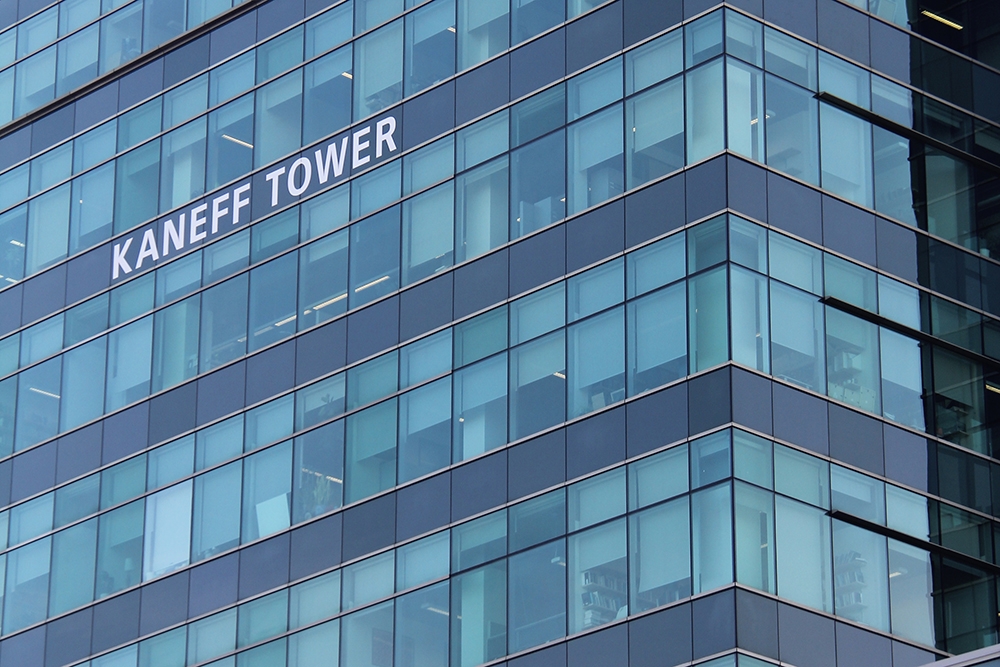Kanchi Uttamchandani and Alex Kvaskov | News Team
Featured image: York’s Vice-President Academic and Provost Rhonda Lenton is rumoured to be a top contender in the secretive search for York’s next president. | Amir Yazdanparast
Rumours are swelling around York’s potential new president, although York says no decision has been made. Lenton is currently York’s vice-president academic and provost.
In their letter, professors Jody Berland and Ricardo Grinspun slam the university’s presidential search process and make allegations against Lenton.
“As someone who has worked at York for a long time, and in ever more senior executive positions, Provost Rhonda Lenton should have earned the widest possible support and endorsement from across the university for her leadership,” reads the letter.
“After speaking to dozens of York faculty and staff about the presidential search, we found no support for her to become the next president; most commonly, the reaction was shock and disbelief about the possibility.”
Berland and Grinspun allege that Lenton’s legacy is a more tiered, differentiated and bureaucratic university.
“Full-time faculty are diminished in numbers and overworked. Half of the instructors in the institution work under precarious and vulnerable conditions. Students’ learning conditions, including access to books and other resources, and indeed the reputation of the university have deteriorated,” they say.
Berland and Grinspun urge the Presidential Search Committee to choose a president who will inspire and bring York’s community together.
Meanwhile, English professor Agnès Whitfield has written a letter to the Presidential Search Committee, claiming that administrative decisions at York are made with little consultation with stakeholders and without any apparent rationale.
“The decisions made by the current administration, including Lenton, to prioritize complex and costly accounting models […] cannot stand up in the short, medium or long term,” says Whitfield.
For faculty working in the trenches, there is almost no sign of any meaningful engagement with the academic goals and function of the university as an institution of higher learning in the 21st century, according to Whitfield.
“There were important downsides to the way this kind of academic planning was carried out along a budget model,” says Whitfield. She adds that York has created a defensive culture in which departments fiercely guard their territory.
Other university bodies have also weighed in on the search process. The York University Graduate Student Association, or YUGSA, is demanding the Presidential Search Committee select a president who reflects the values of community, inclusivity and social justice.
“We also demand that the process reflects these values by avoiding secretive and closed-door approaches and by allowing the community to have a say in the matter more so than the governors, who do not play a part in the actual education of students,” says YUGSA President Mina Rajabi Paak.
“In accordance with established guidelines, the Presidential Search Committee is made up of 14 full-voting members, drawn from York’s community of students, faculty, staff, governors and alumni. Seven committee members are selected by the Board of Governors and seven by the University Senate,” says York spokesperson Barbara Joy.
Grinspun alleges that Lenton is not the only applicant for president, but has been brought onto the shortlist of candidates considered by the search committee.
“Given the secretive nature of the process, the York community is placed in the unfortunate situation of having to involve itself in the presidential search based on leaks, rumours and incomplete information, rather than being part of an open, democratic process,” he adds.
Current President Mamdouh Shoukri is leaving York in June. Joy says York’s Presidential Search Committee launched an extensive community consultation process to guide the search.
“The guiding principles were established to ensure an independent process for presidential searches. The principles reflect the responsibility established by the York University Act that appointment of a president is the responsibility of the Board of Governors in consultation with York Senate,” explains Joy.
She says the consultation process aims to collect feedback on what the York community sees as important to the search for a new president.
“Many perspectives were shared in early 2016 in open sessions, via email and in meetings with faculty councils, senate, student leaders, university officers and the Board of Governors. A new job description profile was created using the feedback and shared for additional community input in June,” she adds.
“Ultimately, the committee will make a recommendation to the Board of Governors, who will vote to appoint the new president. We hope to have the process completed and a decision made by early 2017.”
Lenton was not available for comment at the time of publication.




